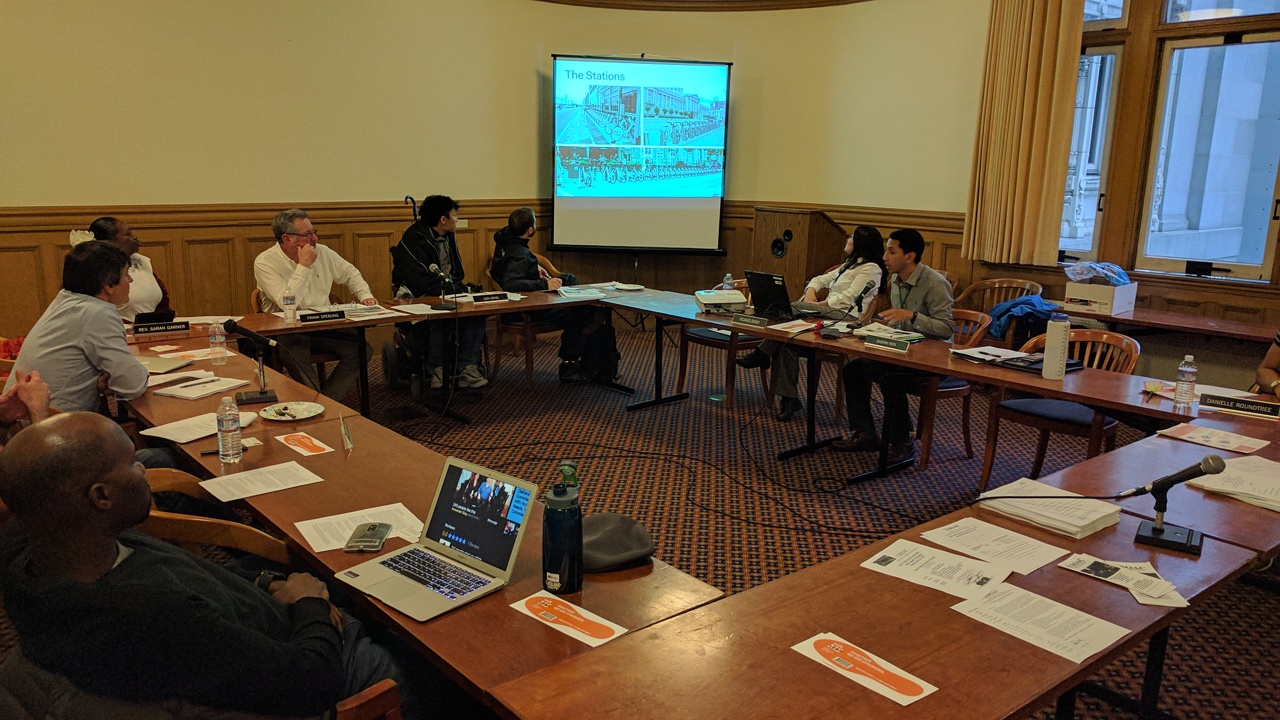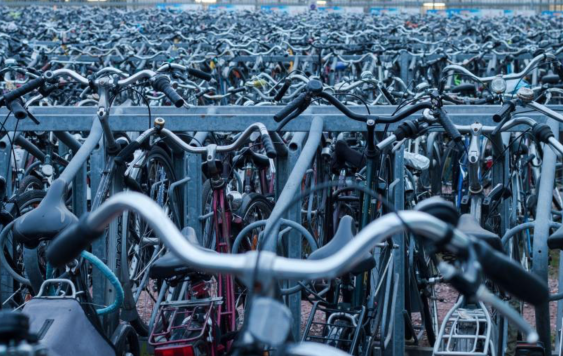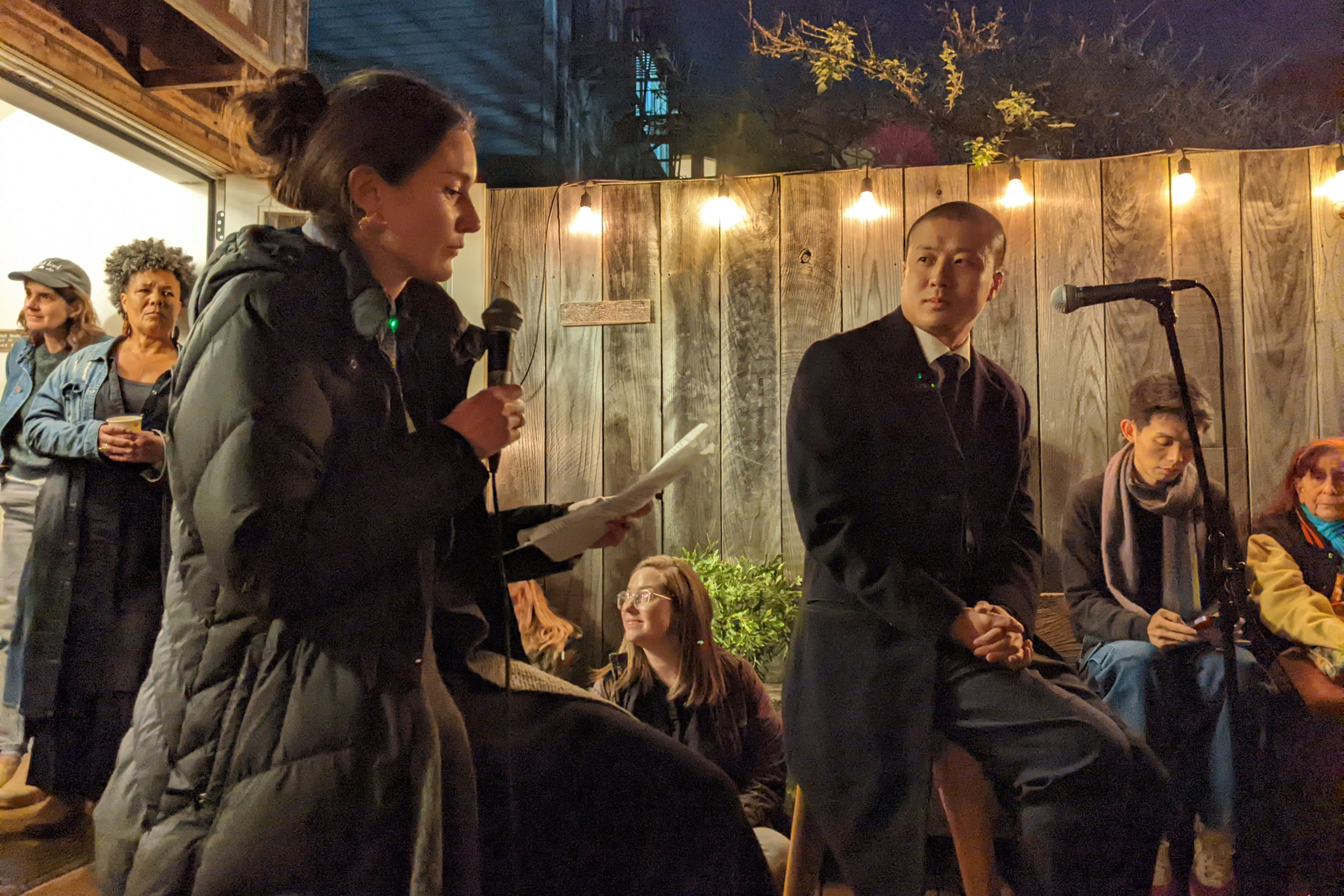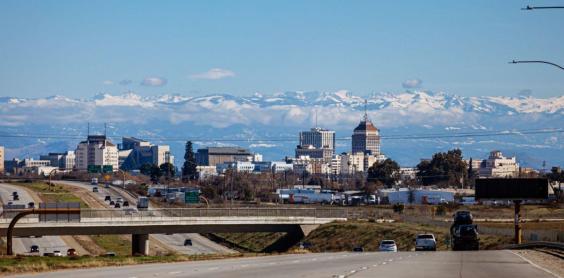Members of Oakland's "Mayor's Commission on Persons with Disabilities" (MCPD) are miffed at Motivate and the Metropolitan Transportation Commission (MTC) for planning Bay Area Bike Share without including bikes for disabled users. "I hate to quote Cool Hand Luke but what we have got here is a failure to communicate," complained Frank Sperling, Chair of the MCPD, to bike-share representatives last night at Oakland City Hall. "Someone chose to exclude people with disabilities."
Aaron Zisser, another commissioner and an attorney, argued that Bay Area Bike Share can't legally launch without bikes for the disabled. "Disability rights advocates in Berkeley sued Uber, Lyft, and the NY taxi cabs, all successfully--strong legal advocacy is a compelling feature of this community," he said. He added that he would be "shocked if there was a rollout without getting adaptive bikes."
Several commissioners cited Title II, the Nondiscrimination Mandate of the Americans with Disabilities Act, which they said could be applied to bike-share. Title II says: "No qualified individual with a disability shall be excluded from participation in or be denied the benefits of the services, program, or activities of a public entity."
As Streetsblog readers are surely aware, the Bay Area Bike Share system, which currently has some 700 bikes in San Francisco and San Jose, is poised to start a ten-fold expansion across the entire Bay Area, including Oakland. "The city of Oakland will get approximately 70 stations with 850 bikes," explained Carlos Hernandez, Bike Share Coordinator for the city, in a presentation to the MCPD. "Berkeley and Emeryville will be part of it too, so it's a pretty robust bike-share system for the East Bay."
Sperling explained that Sarah Garner, another of the MCPD commissioners, first asked how Oakland can include the disabled in bike-share a few months ago. Per her request, Hernandez studied the question, and at last night's meeting he cited Zagster, a bike-share company with offices in San Francisco. It operates share bike systems for universities, corporations, hotels, and a couple of small municipalities. They offer hand-cranked bicycles, adult tricycles, and a few other forms of adaptive bikes for people who cannot use their legs or lack the balance to use a standard bicycle.
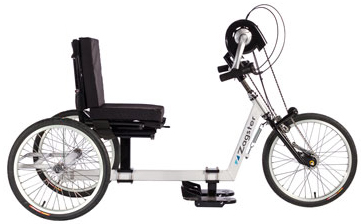
In addition, Portland, OR., explained Hernandez, provides adaptive bikes to bike-share users via local bike shops, rather than the normal bike-share racks. The commissioners asked Hernandez to research more options for Motivate to provide adaptive bikes to the disabled in Oakland.
Daryl Meshack, a member of the audience, spoke about his own use of a hand-cranked, adaptive bike (Meshack lost the use of his legs in a vehicle crash while in the army). "Mine comes from the VA. I own it," he said of his bike. "People ask me if it's something with the city because they want to be a part of it." He stressed that an adaptive-recumbent bike needs to have lights up high to remain visible to motorists.
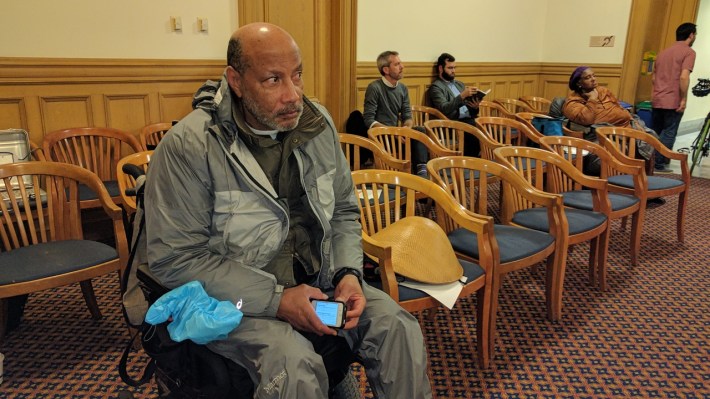
Motivate and Oakland, meanwhile, are working on a pilot project, including outreach meetings, to figure out the best way to provide adaptive bikes. "We are excited about exploring a pilot that is responsive to the needs of the disabled and older community," said Emily Stapleton, manager of Bay Area Bike Share, to the MCPD. But several of the commissioners still expressed disbelief that this issue wasn't dealt with sooner. "I am really surprised among the eight agencies involved, nobody said 'let's put the brakes on this,'" said Zisser.
Jeff Tumlin, Oakland's interim director of transportation, mentioned that his mother was disabled, and that "Social equity is paramount and we pay attention to people who have suffered historic disparities."
"This is a complicated topic and many other cities are struggling with it, since there is no single, universal adaptive bike that is accessible to the full array of disabilities," added Tumlin. He asked the commissioners for patience while MTC, Motivate, and Oakland figure out solutions that are best suited to Oakland and the Bay Area.
But the commissioners remained perturbed that Bay Area Bike Share is only now trying to figure this out. "I don't know who messed up, but... somebody messed up," said Sperling. "What's done is done... But persons with disabilities need to have a loud voice in the solution."
The commissioners agreed to revisit the issue in two months.
